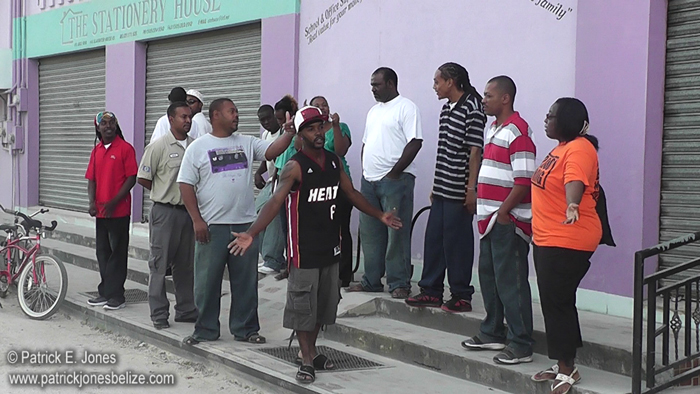Posted: Thursday, December 3rd 2015. 8:32 AM CST
BMG: In an ever growing and increasingly competitive workforce influenced by globalization, it is imperative that Belize make the necessary investments to foster a more skilled labor force, capable of doing 21st century jobs and able of meeting the demands of modern industries.
The Statistical Institute of Belize (SIB) recently released labor force statistics indicating that the unemployment rate is at 10.2 percent, its lowest in five years, however, to put that in some context consider that over 55 percent of Belize’s current labor force has not completed a secondary school education.
According to the SIB, only one-third of all persons in the labor force has completed a secondary level of education or higher. This brings into question several factors: the availability and affordability of education, the quality of the education being provided, and a need for student-assessment and industry-specific training similar to a strategy implemented in Singapore, which has proven to be successful.
Singapore made significant investments to educate its people with the skills for industries the country wanted to specifically target. An examination is given after the completion of each level of education to determine their placement at the next level based on their individual capabilities. This has helped to streamline students into the workforce with ease.
According to Social Security statistics, from 2008 to 2014 only 10,000 new jobs were created while there are over 5,000 students graduating from school every year. At minimum, there should have been 35,000 new jobs created during that period. Creating sustainable well paid jobs is the key to uplifting Belizean citizens out of poverty, which currently stands at 41.3 percent, and dependency on political handouts for survival.
There needs to be a clear strategy to synchronize the business with the education sector, providing training for Belizeans to capitalize on employment opportunities when created in the country so companies or employees do not need to look elsewhere. Government must as well, commence to focus on providing a fertile and supportive environment, for the thousands of entrepreneurial minds and business-student graduates in the country.
According to SIB’s most recent report, there are also an estimated 18,730 persons, representing about 13 percent of all employed persons, who worked less than 35 hours per week and are therefore considered underemployed. On average, these persons work for about 20.7 hours per week. Females are twice as likely to be underemployed, with one-fifth of all employed women falling into this category, compared to about 10 percent of their male counterparts.
According to SIB statistics, of those employed in Belize (138,145), only 24 percent are skilled in some form of agriculture, craft or machinery. Of that 24 percent, which represents 33,787 people, only 4,042 are women. Over 35 percent of the country’s employed population work in clerical, service or sales industries.
The SIB has also reported that of the employed workforce over 56 percent of has been unable to keep a job for more than five years. Only 22 percent has been able to hold a job for more than 10 years, which is consistent with the estimated 24 percent of skilled laborers in the labor force.
The government needs to develop a strategy identifying industries and sectors Belize should be targeting and work towards educating its people in preparing them for entry into these sectors to become productive and successful. Many foreign companies have come to Belize and set up shop but have had to bring in skilled laborers to do jobs Belizeans are not trained to do.
Belize also needs to develop existing industries while looking to invest in new ones. Agriculture is still one of the largest industries in the country but value-added industries like agro-processing can play large in helping the country increase exports while maximizing the use of already available resources.
Equipping its citizens with the skills necessary to compete for a job in the demanding globalized workforce is the only way forward for Belize and it cannot wait five – ten years to do so, it must do so now because tomorrow might be too late.
